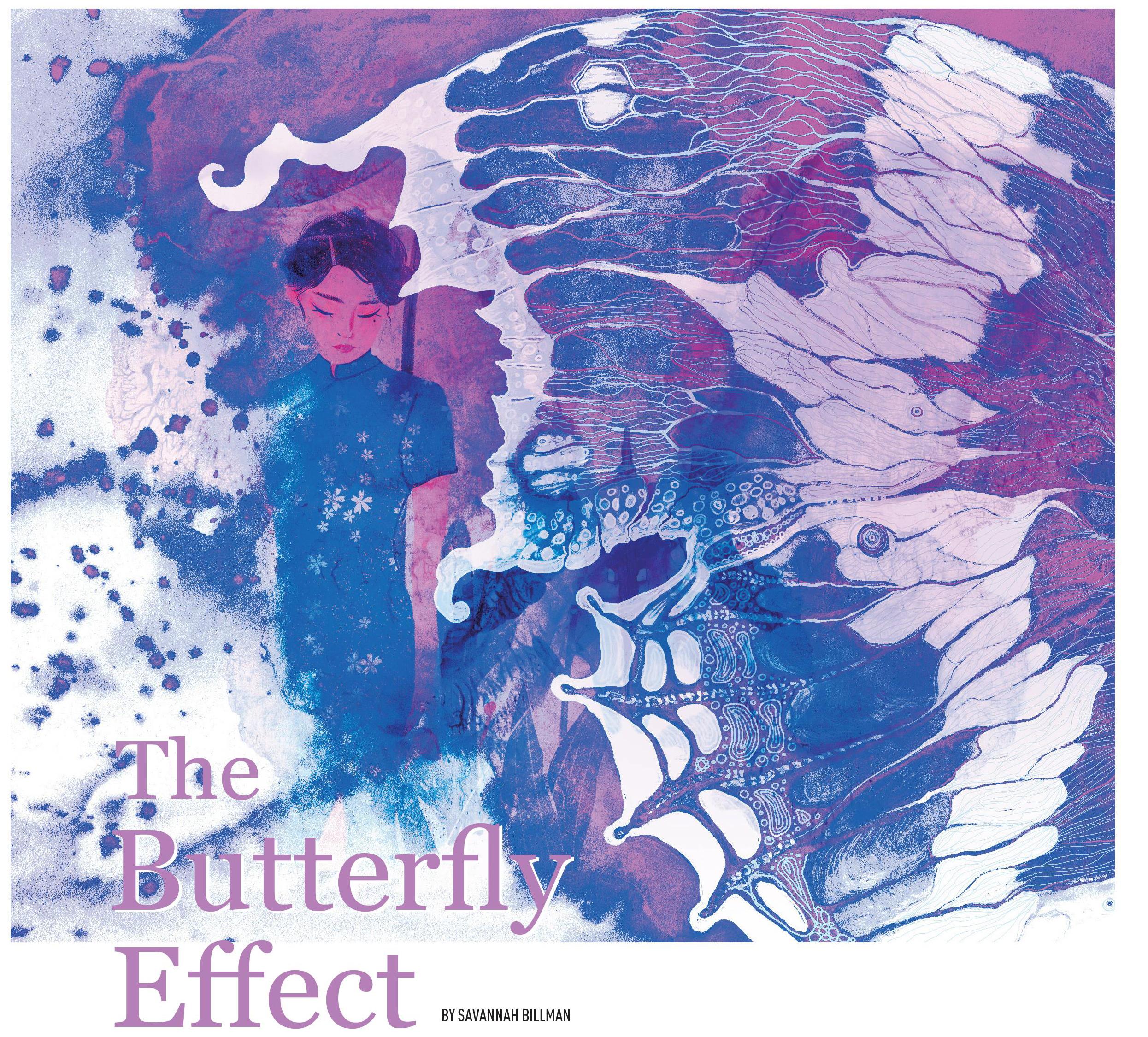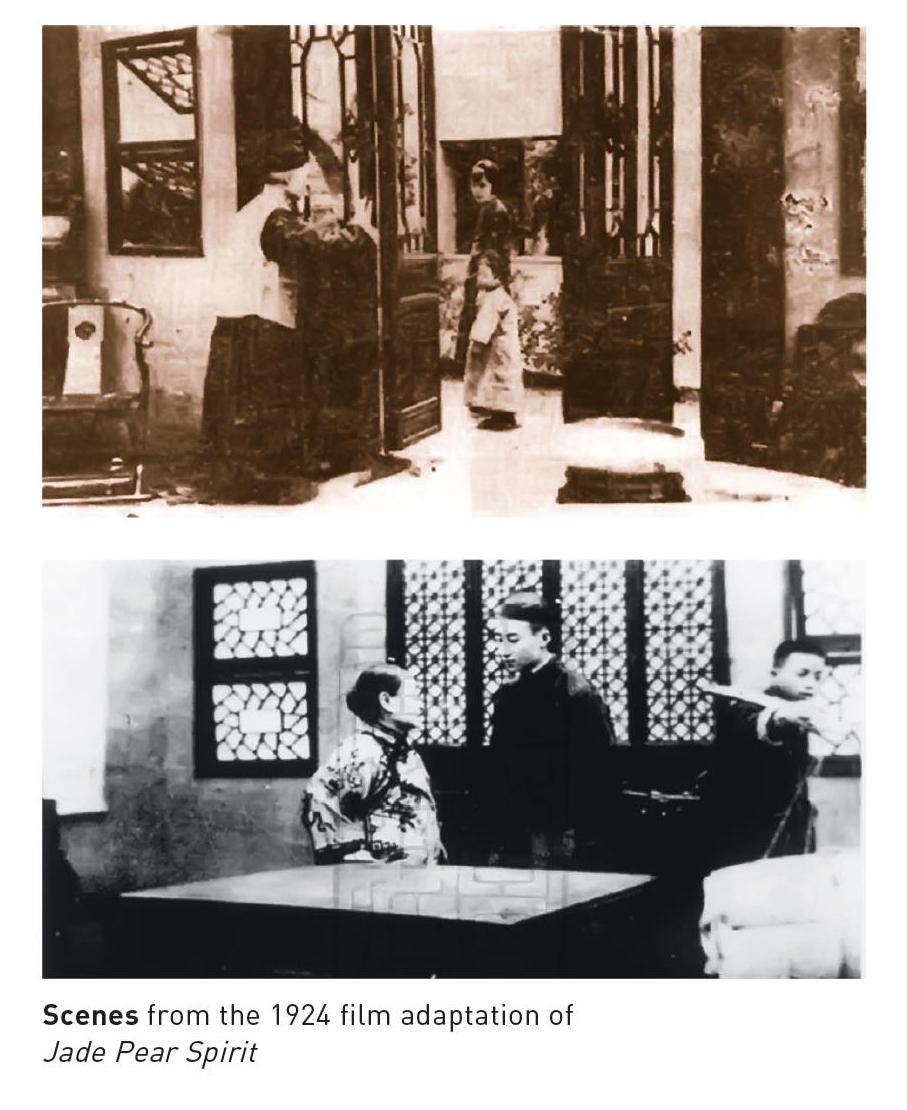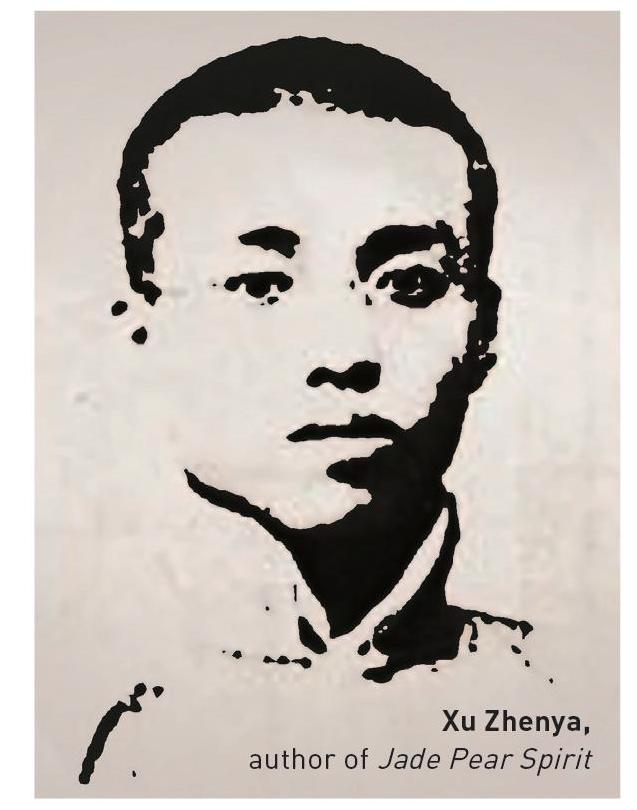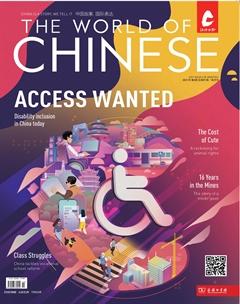The Butterfly Effect
Savannah Billman



Redeeming “Mandarin Duck and Butterfly,” a forgotten literary movement in early modern China
鸳鸯蝴蝶派:动荡年代的浪漫文学
China in 1912: the most chaotic of times, the most hopeful of times. After popular uprisings swept the country, the Qing dynasty collapsed and the Republic of China was established on January 1, 1912. Free of imperial rule, China was ready to modernize, reform, and reinvent itself—but how?
It is not surprising that much of Chinas most famous modern literature emerged from this period of national soul-searching. However, one body of writing, known as Mandarin Duck and Butterfly School of literature(鸳鸯蝴蝶派), is often overlooked in the modern Chinese canon. These fanciful stories about melodramatic and tragic love were heavily criticized by the intellectuals of their time and purposefully cast aside. Yet, this overlooked school reveals much about the evolution of post-imperial literature.
Butterfly literature emerged from a tradition of Chinese love stories dating back to the 17th century, known ascaizijiaren(才子佳人) or “scholar-beauty” stories. Writers of this genre celebrated the often tragic stories of forbidden love between a sensitive male scholar and a beautiful, virtuous woman, and it eventually evolved to include dynamics of heroism, militarism, sentimentality, and Confucian propriety.
At the close of the Qing dynasty, the Mandarin Duck and Butterfly movement emerged to carry the tradition of Confucian love stories to a changed China. Named for two species often seen in pairs and used as a metaphor for lovers, these love tragedies and crime dramas—the genres favored by both Butterfly writers and readers—provided entertainment “without striving for new social visions,” according to literary scholar Rey Chow.
The prime example of Mandarin Duck and Butterfly literature was written by Xu Zhenya (徐枕亞), a writer from Jiangsu province. His 1912 novelYulihun(《玉梨魂》), orJade Pear Spirit, told an intense and tragic tale of love at the twilight of imperial China. In the story, a widow falls head over heels for her sons tutor. The lovers passion compels them to swear eternal commitment and write letters in blood; nonetheless, they dare not make their affair public or marry due to the social taboo of widows remarrying.
The tale ends with the widow dying so that the tutor is free to marry a socially acceptable match, but he also dies soon after, grieving her. The lovers ofJade Pear Spiritare obsessed with following Confucian propriety and traditional morals: They choose to die rather than rock the boat.
Jade Pear Spiritwas a breakout hit, selling over 20,000 copies in its first two years. It was republished as a magazine serial from 1914 to 1919. According to literary critic C. T. Hsia,Jade Pear Spiritwas one of the most (if not the most) printed books of Chinas Republican era, which lasted almost 40 years from 1912 to 1949. Female readers fantasized about Xu, the author, as a classic romantic who would sweep them off their feet. One female fan, completely enamored, convinced Xu to marry her. Unfortunately, she discovered only afterward that Xu was a slovenly and depressed opium addict whose best writing years were long behind him.
He Haiming (何海鸣), a Hunan native who relocated to Hong Kong after a 1913 anti-government uprising in Nanjing, was another writer who caught readers imagination with his 1923 short story “For the Love of Her Feet.” The narrator Ah Fu, after pining for years after a pair of beautiful feet he saw walking by outside the window of his warehouse basement, finally meets their unlikely owner: an old prostitute.
Yet love triumphs over their class differences: When the prostitute asks to simply be Ah Fas concubine, he instead decides to marry her. “Your feet have now taken you through the gate of good fortune,” he tells her. “May you keep them under control for my sake.” A typical theme for Butterfly writers, true love is the prostitutes ticket out of a culturally shameful lifestyle.
But in an age of constant social reform, imperialist threats to Chinas territory, and economic uncertainty, critics argued thatJade Pear Spiritand “For the Love of Her Feet” did nothing more than entertain. Intellectuals grew increasingly disillusioned with the “old style” of literature for failing to help modernize China or promote scientific thinking. These thinkers coalesced into the newly-christened New Culture movement, a group criticizing classical Chinese culture in favor of modernization based on Western scientific and democratic principles.
The intellectual Chen Duxiu (陳独秀), who would go on to co-found the Communist Party of China in 1921, was one of those who criticized the values in Butterfly texts. “Loyalty, filial piety, chastity, and righteousness are a slavish morality,” he wrote in the 1915 essay “Call to Youth.” “I would much rather see the past culture of our nation disappear than see our race die out now.”
May 4, 1919, was the turning point for those New Culture intellectuals disaffected with an outdated and restrictive traditional culture. On that day, students took to the streets in protest against imperialism, igniting a movement soon morphed into a general call for democracy, scientific development, and political reform.
In the words of Hu Shi (胡适), professor and later president of Peking University, this was a “Chinese Renaissance.” May Fourth intellectuals saw literature as a political tool to shape and unify the nation. The glorification of tradition in Butterfly literature, as well as its sensationalized and romantic style of prose, had no place in this political movement.
The sociopolitical movement also revealed schisms in the discussion surrounding Chinese language reform. Post-May Fourth intellectuals sought to replace traditional literary Chinese with vernacular, orbaihuawen(白話文). In the first two decades of the 1900s, writing styles were caught in a linguistic limbo between classical Chinese andbaihuawen. Butterfly literature had fluttered between the two styles, with XusJade Pear Spiritexperimenting with multiple types of classical prose alongside less formal dialogue.
The changing tides of literature proved deadly for the Butterfly movement. Some of its writers ended their career in disgrace.Jade Pear Spirits Xu, an opium addict living in obscurity, died in 1937. He Haiming moved back to Nanjing from Hong Kong, where he lived an extravagant life until he died penniless in the Japanese-occupied city.
Other Butterfly writers evolved with the times, even metamorphosing into post-May Fourth authors. One periodical, Fiction Monthly or XiaoshuoYuebao (《小说月报》) was originally a Butterfly publication, but when the writer and critic Mao Dun (茅盾), who later became Minister of Culture of the PRC, took over leadership of the magazine in 1921, it switched its focus to translating European literature, vernacular writing, and realism. In a short time, Fiction Monthly became a magazine associated with May Fourth intellectuals and ideas, publishing well-known authors of the movement like Lu Xun (鲁迅), Lao She (老舍), and more.
May Fourth literature was destined to last longer than the escapist romanticism of Butterfly works. The future leaders of the PRC also matured on a steady diet of this literature. Li Dazhao (李大钊) founded not only May Fourth literary journals but also, alongside Chen Duxiu, the Communist Party of China. A generation inspired by post-May Fourth literature would go on to form the PRC and shape Chinas future.
Yet Butterfly tales werent without their advocates. Zhu Ziqing (朱自清), a May Fourth essayist, conceded in a 1947 essay that “the novels of the Mandarin Duck and Butterfly School are intended for people to have fun after drinking, but they are authentic Chinese novels. Chinese novels have always been dominated by the uncanny and legendary.”
More recently, University of Jilin professor Lu Yu has also heralded Butterfly literature as an important stepping stone for more revolutionary literature. He argued that since Butterfly literature found its largest audience among casual readers, the sheer popularity ofJade Pear Spiritand other works “trained” the masses to have good reading habits, making them receptive to May Fourth literature. In recent decades, professionally published anthologies have introduced Butterfly writers like Xu Zhenya, He Haiming, and Zhang Henshui (張恨水) to modern readers.
Despite the disappearance of Butterfly literature in the years after May Fourth, this school has exerted profound influence on the formation of modern Chinese literature. The movement took on the ambitious task of integrating traditional literary forms with the modern age. Its writers were among the first to creatively imagine how normal Chinese life, with all its love, tragedy, and scandals, would proceed in the post-Qing chaos.
Although Butterfly writers failed to satisfy intellectuals and offered no concrete answers to the challenges facing China, perhaps they knew something their May Fourth colleagues didnt: When times are tough, sometimes escaping into a good book is all you need.
Scenes from the 1924 film adaptation ofJade Pear Spirit
Xu Zhenya, Author ofJade Pear Spirit
Illustration by Cai Tao and Elements from VCG and Photographs by Douban
Photograph by Wikimedia Commons
 汉语世界(The World of Chinese)2021年6期
汉语世界(The World of Chinese)2021年6期
- 汉语世界(The World of Chinese)的其它文章
- Balcony
- Gimme Sugar
- Access Wanted
- Class Struggles
- The Cost of Cute
- 学汉语
